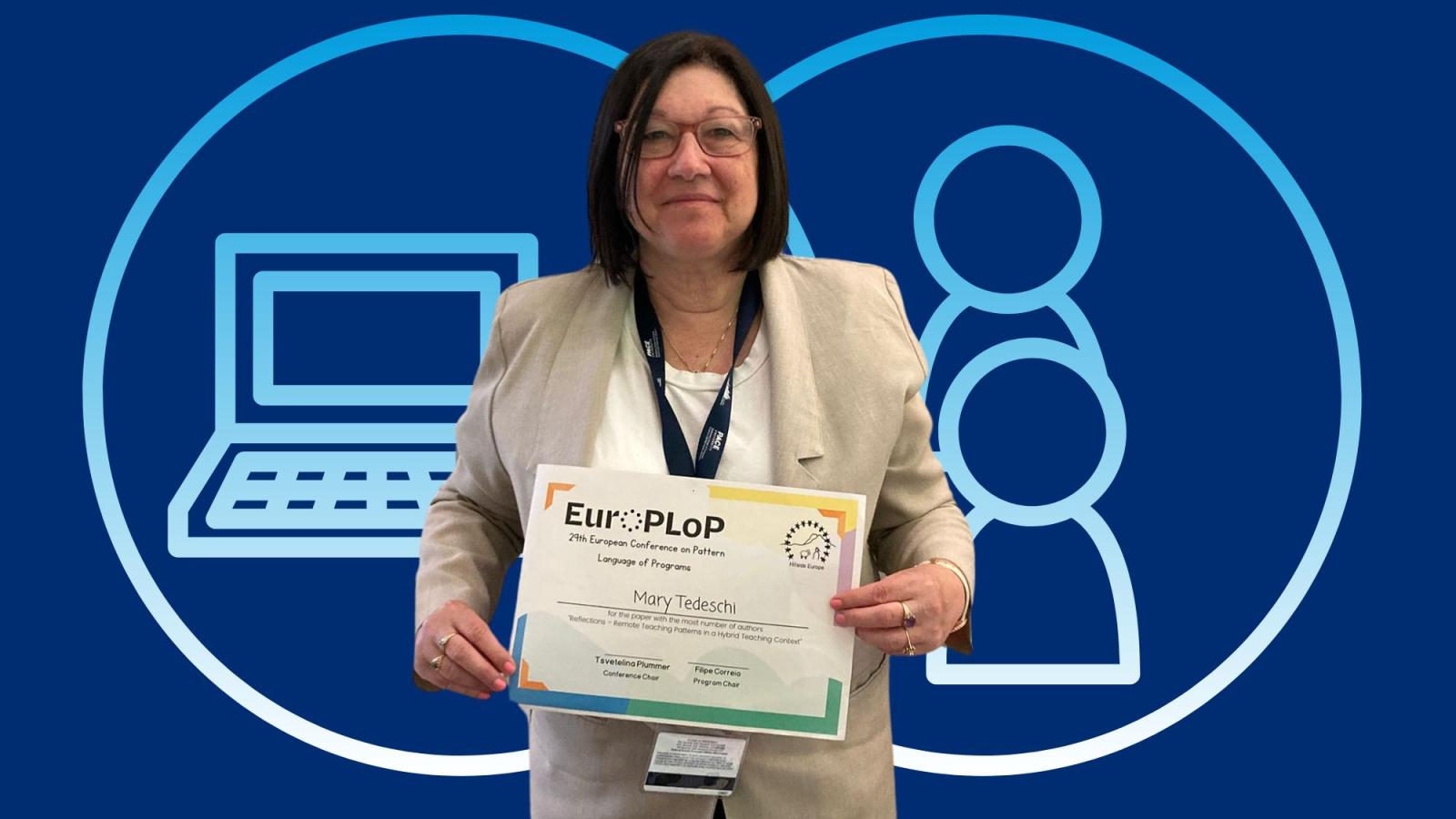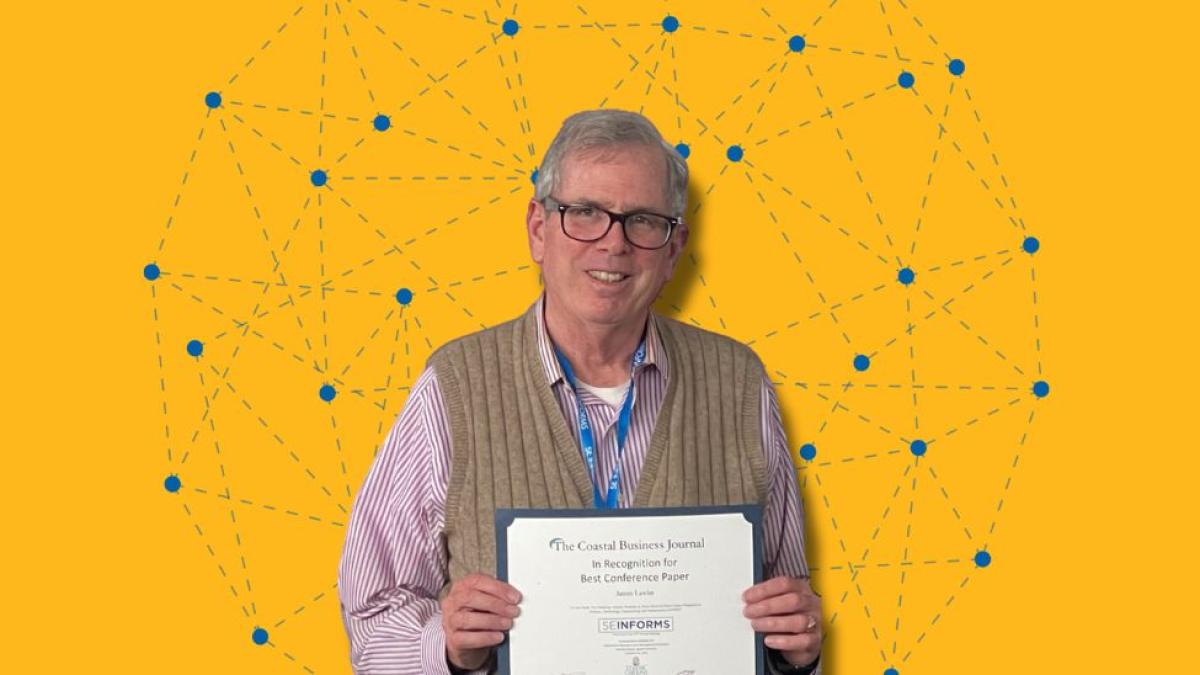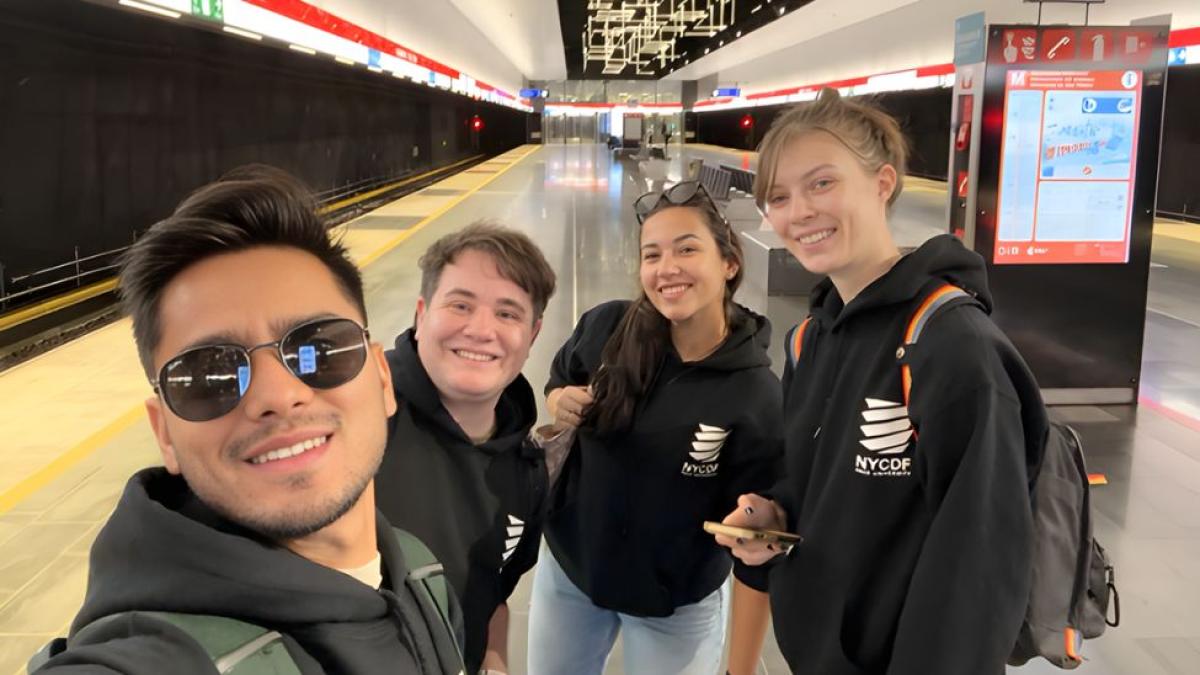In StartupHub.ai, Seidenberg Professor David Sachs is quoted on how the AI industry is splitting into distinct lanes. Sachs notes that he sees two types of models emerging: “the large, we can do everything model, and the more focused ones like Julius or Perplexity.”
Seidenberg Professor and Students Explore Hybrid Teaching at International Conference

At this year’s European Conference on Pattern Languages of Programs (EuroPLoP), Seidenberg Professor Mary Tedeschi presented her latest research, Reflections – Remote Teaching Patterns in a Hybrid Teaching Context. Returning for her fourth EuroPLoP, the premier European conference on patterns and pattern languages which showcases how design patterns capture and share expertise, tacit knowledge and research findings in a unique way, Professor Tedeschi shared insights from her innovative work on hybrid education models—a project that marks her first collaboration with students on a conference paper. “I’m very proud of the work we did together and couldn’t be happier with the results,” she remarked, reflecting on the dedication and creativity her student collaborators brought to the project.
The students who collaborated with Professor Tedeschi on the paper are Aman Prakash, Deep Manish Mehta, Tanmay Mehta, Yousuf Afreen, Pulkit Singh, and Sejal Arora.
The research examines the adaptation of remote teaching patterns, originally developed during the COVID-19 pandemic, for a hybrid model where in-person and remote learning intersect within scheduled class hours. Drawing from her personal experience, Professor Tedeschi addresses both challenges and opportunities unique to hybrid education, particularly focusing on sustaining student engagement. By defining terms such as synchronous, asynchronous, flipped, and HyFlex, the paper establishes a shared vocabulary to guide educators and designers as they implement hybrid strategies.
To add practical depth and better verify the investigated patterns, Professor Tedeschi and the students added a survey of 213 students to the study. This data-backed approach underscores the effectiveness of their refined teaching patterns, contributing valuable, real-world insights to the paper and the educational community.
As hybrid models gained traction and practically became the norm during the pandemic, Professor Tedeschi’s work exemplifies Seidenberg’s commitment to innovation in experiential learning, as well as the value Seidenberg puts on collaborative research between students and faculty.

